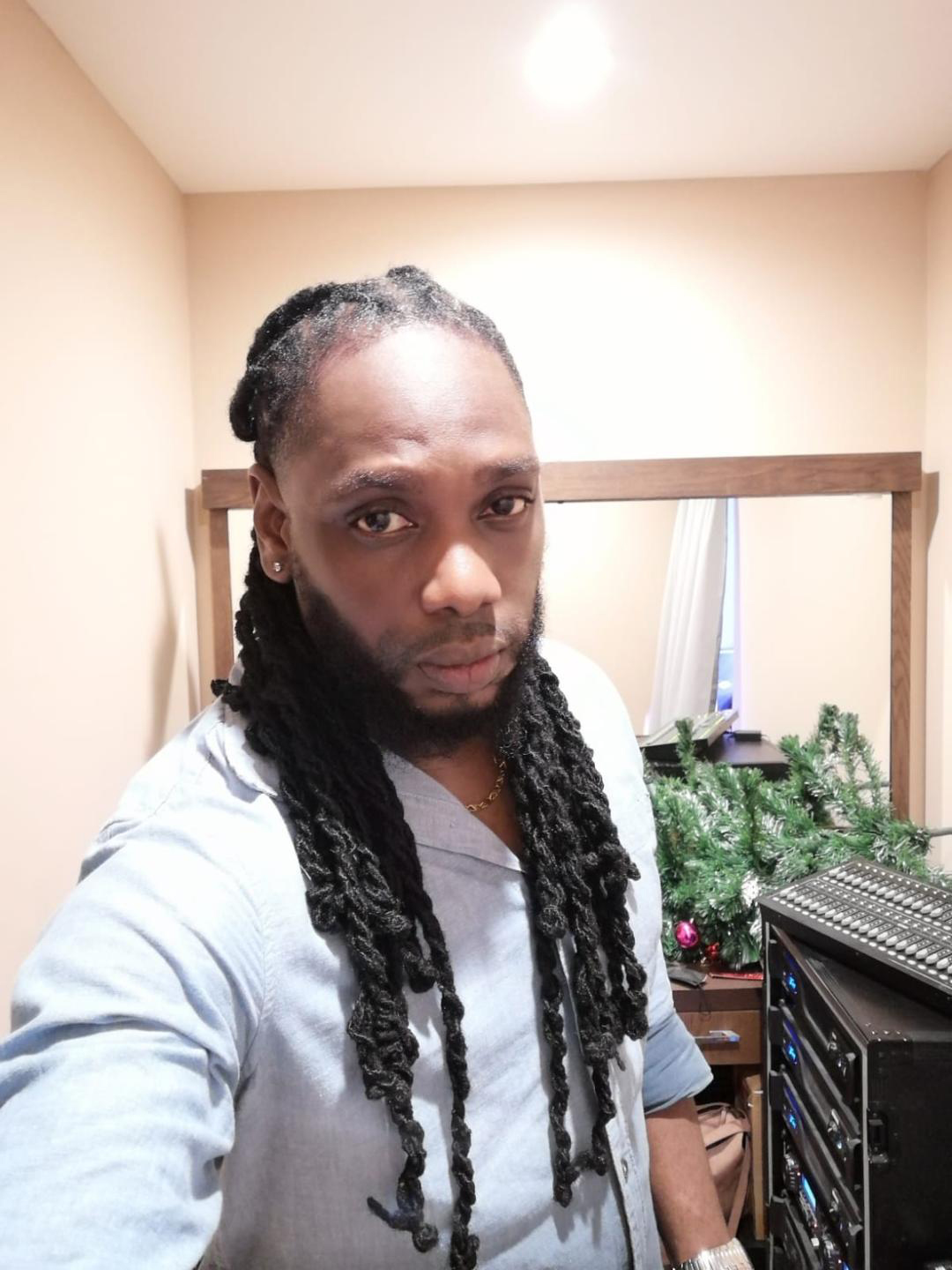Kwasi Edmondson, widely known as “Kwasi Ace,” has always harboured a deep-seated desire to infuse his music with his cultural heritage. Therefore, when he became entranced with the rhythm of a track from a Grenadian producer, drawn to its vibrant drum beats, he delved into traditional folk songs and uncovered a conversational quality that spoke to him on a profound level. Inspired by this discovery, he decided to incorporate this element into his latest single, “Think I K [care].”
In “Think I K,” Kwasi Ace weaves together elements of his cultural heritage with contemporary themes, exploring the insidious nature of rumours and gossip. Drawing from personal experiences and observations, he delves into the phenomenon of rumours igniting like wildfire, spreading unchecked and unchallenged. It’s a narrative that resonates deeply with listeners, most of whom have found themselves ensnared in webs of rumours at some point in their lives. Through his music, Kwasi Ace invites listeners to reflect on the destructive power of gossip and the importance of critical thinking in navigating the web of hearsay. Apart from having memorable lyrics and a catchy beat, the presentation of the music holds significant cultural importance for Edmondson. While the themes may be universal, the production of the tracks aims to uplift the black population.

“The music lives on and through our ancestors, the music lives. It is in the drumming. I am proud of who I am,” he declared. “I love my culture. My mom is very culturally-oriented. She attended an African church and I grew up with that type of background. The first instrument I learned to play was a Conga drum.”
He explained that he doesn’t feel enough is being done for Afro-Guyanese to be proud of their heritage and with his music, he is trying to play his part in their upliftment and cultural appreciation.
Edmondson emphasises the importance of cultural appreciation through his lyrical expression. He believes it’s crucial to embrace Guyanese creole, as it distinguishes artists by offering a unique language compared to global norms. Incorporating creole facilitates his conversational musical style, creating a dynamic interplay between characters within his songs. Drawing

inspiration from his surroundings, Edmondson integrates local dialects into his music to maintain authenticity. He underscores the significance of storytelling, honing this craft to enable musicians to lyrically explore diverse aspects of life.
Edmondson’s journey in refining his musical craft began during his time at St Margaret’s Primary School, an institution he credits for its rich cultural emphasis. His participation in numerous state events, where he showcased traditional folk songs, laid the foundation for his artistic development. At the age of 13, he ventured into composing music, a skill that matured alongside him. While initially not pursuing soca music, Edmondson’s artistic evolution naturally led him to explore this genre.
One of his most renowned songs, “Stupid Questions,” originated as a poem. Recognising the challenge of securing airplay for a poem on radio, he ingeniously infused it with rhythm and a catchy chorus. This creative adaptation not only enabled radio play but also contributed to the evolution of his distinctive musical style.
Edmondson’s commitment to continual evolution and growth is unwavering.
He perceives his best song as always lying in the future, indicating a relentless pursuit of excellence. For him, if an artist believes they’ve reached their pinnacle, it might signal the appropriate time to retire. His personal growth is a result of countless rehearsals and dedicated effort, underscoring the rigorous behind-the-scenes work required for a polished stage performance, often unnoticed by the audience.
Theatre played a pivotal role in Edmondson’s growth as a performer, catalysed by his introduction to the stage by veteran actor Howard Lorimer. “Theatre is a fraternity that embraces everybody, irregardless of race, physical ability or sexuality. Theatre sees people as just people,” Edmondson expressed. “So when you are around people like that now. It encourages you to just be yourself and open up because there is nobody there to laugh at you and then you start to laugh at yourself.” He credits that environment with helping him to overcome his painful shyness.
Moreover, Edmondson acknowledges the profound impact of acting on his songwriting and performance skills. He said that acting is also storytelling and having this field to express himself, it was only natural for him to improve as a songwriter since he sees a connection between the two artforms. He said theatre allowed him to understand the importance of shifting tones in his voice so he can create the desired emotional impact for his audience and he brought that over to his musical performances which he says gave him a stronger presence onstage.
While theatre has embraced Edmondson for who he is, this acceptance hasn’t extended to individuals in positions of power, who may view his outspokenness as a threat, particularly if he criticises a political party. He emphasises that his comments are non-partisan, yet he feels that his criticism of a political party has been leveraged against him. Edmondson firmly believes in speaking out against wrongdoing, especially when it involves those in political power and he uses his social media platforms as a means to hold them accountable. However, this activism has come at a cost; he explained that he has been excluded from performing at certain events as a result.
Despite facing consequences for his actions, Edmondson has resolved to live with them, emphasising that he doesn’t just want to be known as a singer, but also as a voice for the voiceless. He is determined to leave a legacy for his children, showing them the importance of standing up for one’s beliefs, a value instilled in him from his upbringing.
Challenges aside, Edmondson maintains that he leads a comfortable life, enabling him to provide for his family and enhance their standard of living. Edmondson’s advice for aspiring performance artists is to have a genuine love for their craft and focus on becoming the best version of themselves, rather than trying to imitate others.


